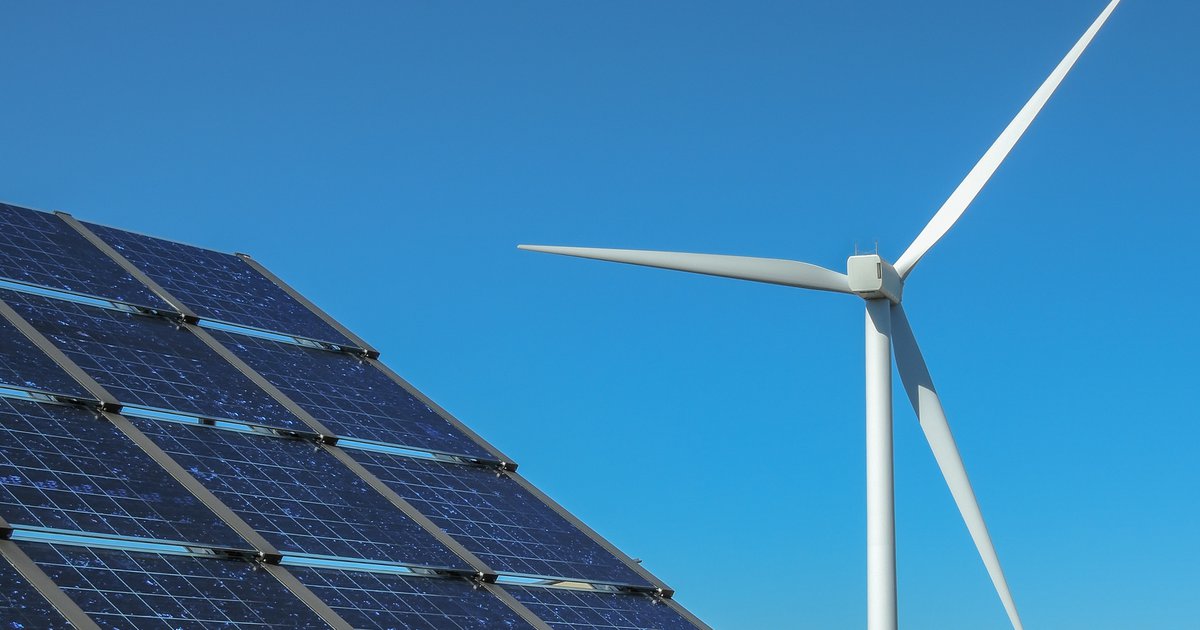Last year Britain’s flagging economy may have dodged a bullet by narrowly avoiding a recession. But with recent figures showing GDP sliding towards negative territory, recession fears persist. The likelihood of another recession is now higher than at any time since 2007: the question is no longer a matter of ‘when’ is the next economic downturn coming, but what to do once it strikes?
In a new paper for the New Economics Foundation we argue that the failure to respond to the last recession by scaling up zero-carbon investment was a huge missed opportunity. Our calculations suggest that if just one third of the coalition government’s tax cuts between 2010 and 2013 had instead been used to fund a mass home insulation programme, emissions from UK homes would be at least 30% lower today. After just three years, the energy savings to household bills would amount to the underlying cost of the programme.
A clear lesson that the recovery from the financial crisis taught us is that economic policy can be too small, too short-sighted and lacking the right focus. Amidst the policy chaos that immediately follows a crisis, policymakers invariably have to make decisions within weeks, if not days. But such decisions can dramatically shape the future direction of the economy.
According to leading economists Olivier Blanchard and Lawrence Summers, a particular problem with the response to the last recession was that policymakers did not have in place the readily available blueprints that could have helped them navigate through the next economic downturn. Consequently, improvisation won the day – and the longer view was largely missed.
Ten years on, UK policymakers find themselves once again wildly unprepared for another recession, but even more serious is that we are also in the midst of a climate emergency. Overburdened with all the counter-cyclical heaving lifting of the last recession, the Bank of England lacks ammunition to aid recovery next time. Any further monetary stimulus may prove counterproductive to boosting the economy, and while laced with a carbon bias in terms of the pricing of existing financial assets, it would also risk slowing or derailing progress towards reaching Paris climate goals.
In this perilous position however, there is clear potential for change. We need an economic roadmap to not only help raise living standards in response to tomorrow’s downturn, but also to deliver the largest green stimulus package that is feasibly possible.
This means we need fiscal policy to step up and come out from the cold. When the next recession hits, the Treasury can’t throw the Bank of England under the bus like it did last time (i.e. by leaving the Bank solely in charge of stimulating the economy, whilst the Treasury ran fiscal austerity – which had the opposite effect). The bulk of the response to the next recession needs to come from fiscal policy and it needs to be green – it should aim to boost zero-carbon infrastructure and entail a significant re-skilling and training programme.
We desperately need to scale up investment in a socially just way to tackle climate breakdown, and we needed to start yesterday. In other words, Britain needs a Green New Deal – one that goes far beyond the country’s strategy to manage economic downturn. But the nature of our response to a recession could ultimately prove the difference between whether progress towards crucial climate targets is either derailed or realised. Recovery from a recession can no longer be thought about in terms of returning to a status quo. The policy response must be used to reprogram the nature, direction, and purpose of the economy. The responses to a recession need to become springboards to a different, sustainable economic future.
For all this to be possible however, we need to put in the groundwork and we need to start formulating plans now. All branches of government should formulate long-term plans for making a just green transition. Within such plans, there should be contingency strategies and measures to be implemented in the event of an economic downturn. Climate change is too big a threat for the lack of ‘shovel-readiness’ and insufficient government planning to be the limiting factor that ultimately delays or derails a green transition for the economy.
As a start, there is a pipeline of ‘shovel-ready’ zero-carbon investment measures that can be deployed quickly and at scale (e.g. flood defence systems, home insulation, EV charging infrastructure, tree planting etc.). And, while these measures could take slightly longer to implement than a tax cut or a reduction in interest rates, the lack of a meaningful recovery – epitomised by a decade of stagnant wages that have not recovered to pre-crisis levels – shows that short-term boosts to economic activity by themselves might be overrated.
A green stimulus package could help structurally rebalance the economy, raise living standards, and provide a much needed catalyst to a zero carbon future. Brand new modelling also shows that, in the event of a recession with limited monetary stimulus available, public debt is likely to rise higher if government fails to act, because a smaller economy will increase welfare spending and erode taxes.
Ultimately, public authorities have the ability to significantly affect the shape and direction of the economy when responding to a recession. The economic case is clear and simply a matter of common sense. Whether the next response to a downturn is green and creates new opportunities for people and communities to flourish is a question of political will.
PrintAlfie Stirling Frank van Lerven | Radio Free (2020-01-17T16:18:37+00:00) We must fight the next recession by investing in a green future. Retrieved from https://www.radiofree.org/2020/01/17/we-must-fight-the-next-recession-by-investing-in-a-green-future/
Please log in to upload a file.
There are no updates yet.
Click the Upload button above to add an update.
